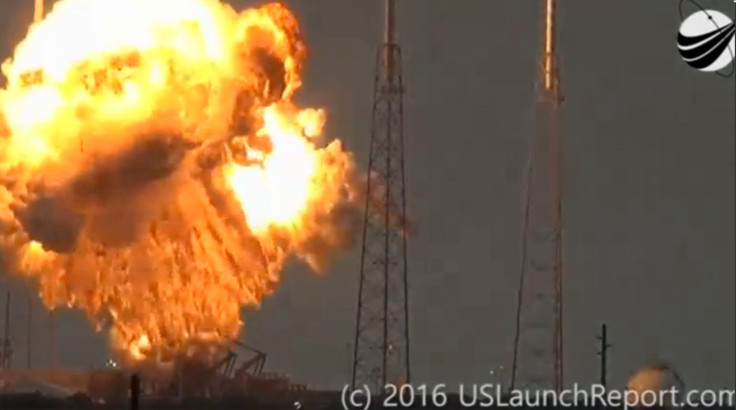SpaceX Finishes Falcon 9 Explosion Investigation, Eyes Jan. 8 Launch Date For Iridium Communications’ Satellite

Elon Musk’s SpaceX announced Monday it had identified the cause of the Sept. 1 rocket explosion, and that it seeks to resume launches Jan. 8 — pending approval from the Federal Aviation Administration (FAA). In its latest anomaly update, the private spaceflight company said analysis of over nearly 3,000 channels of video and telemetry data revealed that the mishap was caused by the failure of one of the three pressure vessels inside the second-stage liquid oxygen tank.
SpaceX said its investigation had revealed “buckles” in the inner liner of one of the composite overwrapped pressure vessels (COPVs), which are used to store liquid helium.
“Although buckles were not shown to burst a COPV on their own, investigators concluded that super chilled liquid oxygen can pool in these buckles under the overwrap. When pressurized, oxygen pooled in this buckle can become trapped; in turn, breaking fibers or friction can ignite the oxygen in the overwrap, causing the COPV to fail,” SpaceX explained in the anomaly update. “In addition, investigators determined that the loading temperature of the helium was cold enough to create solid oxygen, which exacerbates the possibility of oxygen becoming trapped as well as the likelihood of friction ignition.”
In order to prevent such catastrophic COPV failure, the company plans to — in the short-term — change the way it loads helium, and, in the long-term, implement design changes to the COPV to stop it from buckling.
“The corrective actions address all credible causes and focus on changes which avoid the conditions that led to these credible causes,” SpaceX said.
If the conclusions of the investigation are approved, Sunday's launch would carry communications satellites for the Mclean, Virginia-based company Iridium Communications.
The Sept. 1 explosion came as a major setback to SpaceX’s ambitious plans. The blast not only destroyed the payload — a $200 million AMOS-6 communications satellite manufactured by the Israeli company Spacecom, which Facebook planned to use to expand internet access in sub-Saharan Africa — it also caused significant damage to LC-40 — SpaceX’s primary launch site.
As a result of the accident, the company also lost a major order from one of its clients — the British satellite communications company Inmarsat.
SpaceX currently has a backlog of over 70 missions, estimated to be worth over $10 billion.
“A lot of users of space have been willing to depend on them, and I think they have to demonstrate that they earned or re-earned that confidence,” John Logsdon, a professor emeritus at the Space Policy Institute at George Washington University, told Los Angeles Times.
© Copyright IBTimes 2024. All rights reserved.






















